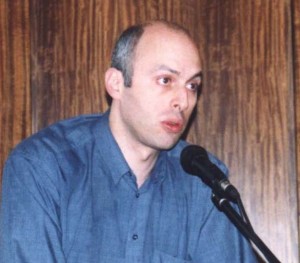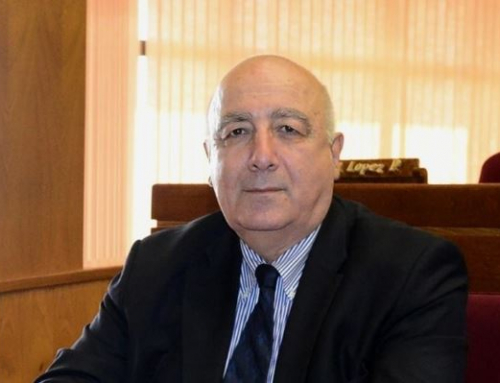 A conference of the Georgian national platform of the Eastern Partnership Civil Society Forum took place in Tbilisi, in the Courtyard Marriott Hotel, on November 24, 2011. Its main objectives were to discuss and endorse the articles of the platform and the code of conduct of member organisations, and elect governing bodies.
A conference of the Georgian national platform of the Eastern Partnership Civil Society Forum took place in Tbilisi, in the Courtyard Marriott Hotel, on November 24, 2011. Its main objectives were to discuss and endorse the articles of the platform and the code of conduct of member organisations, and elect governing bodies.
The discussion turned into a heated – and at times even noisy and unruly – polemic, reflecting differences and tensions between two rival groups of the member organisations. The conference failed to achieve all its objectives. In the last hours many delegates simply walked out, leaving the conference without a quorum and effectively spoiling the elections. This insignificant – at first glance – incident is a vivid illustration of the deep rift in the Georgian civil sector. This case is about more than just mere disagreement between two interest groups with conflicting views.
To begin with, there is a high level of mistrust and mutual suspicion among Georgian CSOs vying with each other for grants offered by Eastern Partnership Program. Many CSOs are distrustful of the governing bodies of the Platform – they fear that the so-called NGO elite is trying to monopolise the process.
Besides, there are clear ideological differences. One group of the Georgian CSOs agrees that Georgia should meet all requirements of the European Union and bring the national legislation into line with European laws. Namely, the government should revise its policies to pay more attention to social issues and adopt community-focused approaches, even though such changes are at odds with the government’s recent liberal and ultraliberal reforms.
The other group – often referred to as the “libertarians” – is strictly opposed to any attempts to infringe on the principles of free market economy and agrees to support Georgia’s integration into EU only on condition that it will not put an end to “wild capitalism” in Georgia.
There would be nothing unusual in the ideological confrontation between these two groups except for the fact that some high-ranking governmental officials and informal decision-makers have recently publicly questioned the wisdom of Georgia’s European integration. Not long ago, a well-known Georgian oligarch Kakha Bendukidze (widely seen as the covert patron of the “libertarian” CSOs) said that he would never want Georgia to become part of such a Europe where even the form of cucumbers was regulated by the law. In the same vein, the Georgian prime-minister Gilauri claimed that at the moment Europe did not seem attractive enough to join.
These views were strangely echoed by some representatives of the ruling party who made it clear – in their statements at various meetings and conferences – that if Georgia did not get unconditional support from the West, it would find an “alternative path”.
And these statements are not mere words. It has been recently suggested in some quarters that it would be useful and beneficial for Georgia to ease border crossing rules with Iran, even though one of the requirements for visa-free travel between Georgia and Europe is that Georgia should toughen border control with third countries.
It is noteworthy also that the Georgian government resorted to such rhetoric after European countries repeatedly criticised democratisation reforms in Georgia as slow and insufficient.
It is not the first time that the Georgian government has used ideological means for political purposes (to retain power). Excessive radicalism is a typical feature of both the Georgian left and the right. It is hard to resist temptation to draw a parallel between contemporary Georgia and the first Georgian republic (1918-21). From the ideological standpoint, then Social-Democratic government of Georgia had much more in common with Bolshevik Russia than with the “capitalist” West. Despite of this, however, it sought protection from Russia by requesting just western assistance.
At that time, too, the Georgian political life was marked by ideological radicalisation of the political elite. Georgian Social-Democrats tried to be “more devout Catholics than the Pope”, i.e. better Socialists than their European counterparts. Karl Kautsky, one of the best-known theorists of German Social-Democracy, used to refer to Georgia as a “Socialist paradise”, being regularly quoted by Georgian Social-Democrats with pride and satisfaction. In the same vein, current Georgian “libertarians” have repeatedly boasted that Georgia ranks as one of the first in the “ease of doing business” category. But Georgian “Socialist paradise” failed to improve people’s lives, much in the same way as Georgia’s top ranking in “doing business” was unable to attract western investors. Russia remains the only big investor in Georgia, with a controlling stake in almost all major Georgian businesses.
In 1921 the excessive admiration for Socialism greatly contributed to the annexation of Georgia by Russia. It is to be hoped that the country’s current libertarian policy and Russia’s dominant position in the Georgian market (even though Russia and Georgia were at war just a couple of years ago) will not bring about similar results.
The tendency to equate an ideology or concept – no matter whether it is Islamic fundamentalism, fascist or Communist authoritarianism, leftist or rightist juntas, etc. – with a religion is very typical for third world countries. Besides, such ideologies are very often supported and promoted by western-educated (graduates of US or European universities) political leaders (such as Vladimir Lenin, a revisionist of Marxism in Russia or Jean-Bédel Bokassa, a cannibalistic leader of the Central African Republic).
Quite a few members of the current Georgian political establishment clearly fit this definition. I think that everyone with insight and knowledge about the matter will agree that many Georgian politicians’ understanding of what are western values derives from Hollywood westerns and gangster movies, and Soviet-made highly politicised but low-quality films portraying “evils and insanities of capitalism”. Many Georgians – even those who claim themselves to be “intellectual” – have a deeply entrenched view that the western civilisation was created by adventurers and crooks, and know nothing either about Protestant ethics (how it was understood by Max Weber) or underlying principles of the resolutions of National Convent of France or Philadelphia Congress in USA.
There is much talk about a high level of public frustration in Georgia today. The disillusionment with some wide-spread myths (for instance, that revenues generated by sales of Borjomi mineral water or tourism alone can make Georgia a prosperous country) is surely a positive development. If the reappraisal of values continues, in several decades the Georgian nation will have a fairly good chance to evolve into a normal society with typical European mentality.
David Losaberidze is project coordinator at the Caucasus Institute for Peace Democracy and Development.





Leave A Comment
You must be logged in to post a comment.